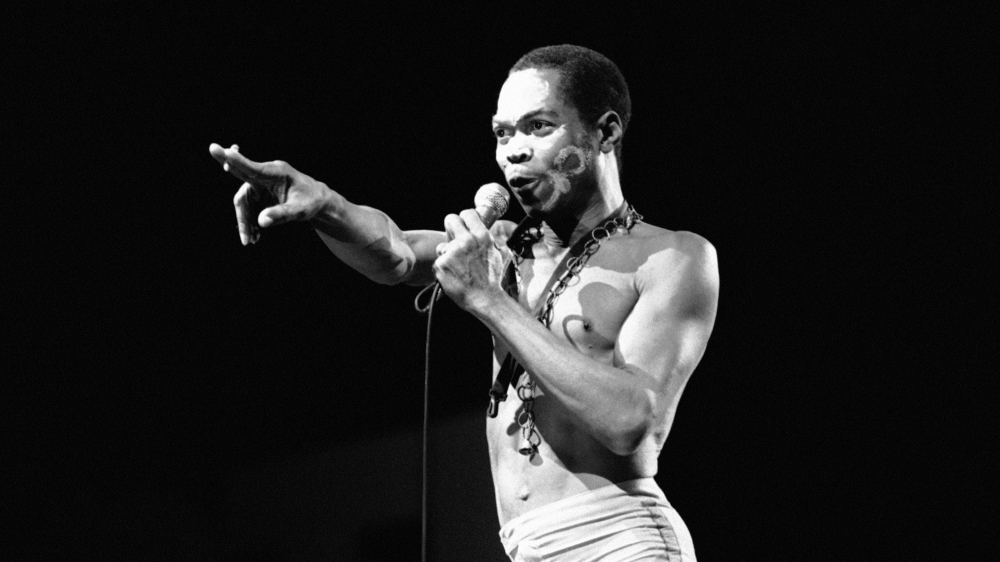
Photo- AP/Laurent Rebours
The Musical Innovations of Fela Kuti: Afrobeat's Revolutionary Pioneer
Afrobeat, which combines jazz, funk, soul, highlife, and traditional African rhythms is commonly associated with the name Fela Kuti.
29 January 2025
Fela was not only a musician but also a trailblazing activist whose songs acted as a call to action for social and political change. He is regarded as one of the most significant cultural figures of the 20th century, and his influence goes well beyond the world of music.
Born in 1938 in Abeokuta, Nigeria, Fela Anikulapo Kuti came from an intelligent and politically engaged family. His father served as a priest and principal of a school, while his mother advocated for women's rights. In London, Fela first sought a medical degree before switching to music and enrolled at Trinity College of Music. This choice put him on a course to transform the music industry.
Fela founded his first band, Koola Lobitos, while he was living in London. They performed a jazz and highlife combination. Fela's music didn't take a clear direction until a tour to the US in the late 1960s. He was introduced to the principles of Pan-Africanism and the civil rights movement by Sandra Smith, a Black Panther Party member. Fela's viewpoint was greatly impacted by this encounter, which motivated him to use music as a tool for social change and the voice of the downtrodden.
Fela started creating the Afrobeat sound after returning to Nigeria and renaming his band Africa 70. Polyrhythmic grooves, intricate compositions, and call-and-response vocals were hallmarks of his music. His songs, which were presented in Pidgin English to make them accessible throughout Africa, dealt with topics including social injustice, colonial exploitation, and political corruption.
Fela's CDs were audio manifestos rather than merely compilations of music. Records such as Expensive Shit (1975) and Zombie (1976) were harsh indictments of the Nigerian military and government. For example, Zombie compares soldiers to mindless zombies who blindly obey commands, which infuriates the authorities and makes Fela angry. He directly challenged authority with his music, which was audacious, unwavering, and uncompromising.
The Kalakuta Republic, his self-proclaimed commune, developed into a centre for political protest and artistic expression. But this disobedience has a price. In addition to being brutally attacked—including during a raid on the Kalakuta Republic in 1977, when soldiers beat him and tossed his mother out of a window, killing her—Fela was jailed more than 200 times. Fela was unfazed and kept releasing politically charged music and fighting for justice despite this.
The impact of Fela Kuti on music is incalculable. From contemporary performers like Burna Boy and Wizkid to contemporaries like King Sunny Ade, his Afrobeat sound has influenced innumerable artists. Fela's vast musical legacy has also influenced performers like Erykah Badu and bands like Antibalas.
Beyond just his music, Fela has become a symbol of resistance because of his activism and unreserved opposition to corruption. His life and work serve as an inspiration to musicians, activists, and anybody who thinks that art can effect change.
When Fela died in 1997, he left behind an unmatched discography and a movement that is still going strong today. His Afrobeat heritage has been continued by his son Femi Kuti and grandson Made Kuti, who make sure that the beat of revolution never stops.
The music of Fela Kuti was a declaration of resistance, a call to arms, and a ray of hope. He reinvented what music might accomplish with his avant-garde sound and unafraid advocacy. As Afrobeat continues to gain popularity around the world, Fela's revolutionary spirit endures today, serving as a reminder of the transformational potential of music to uplift, challenge, and heal.






